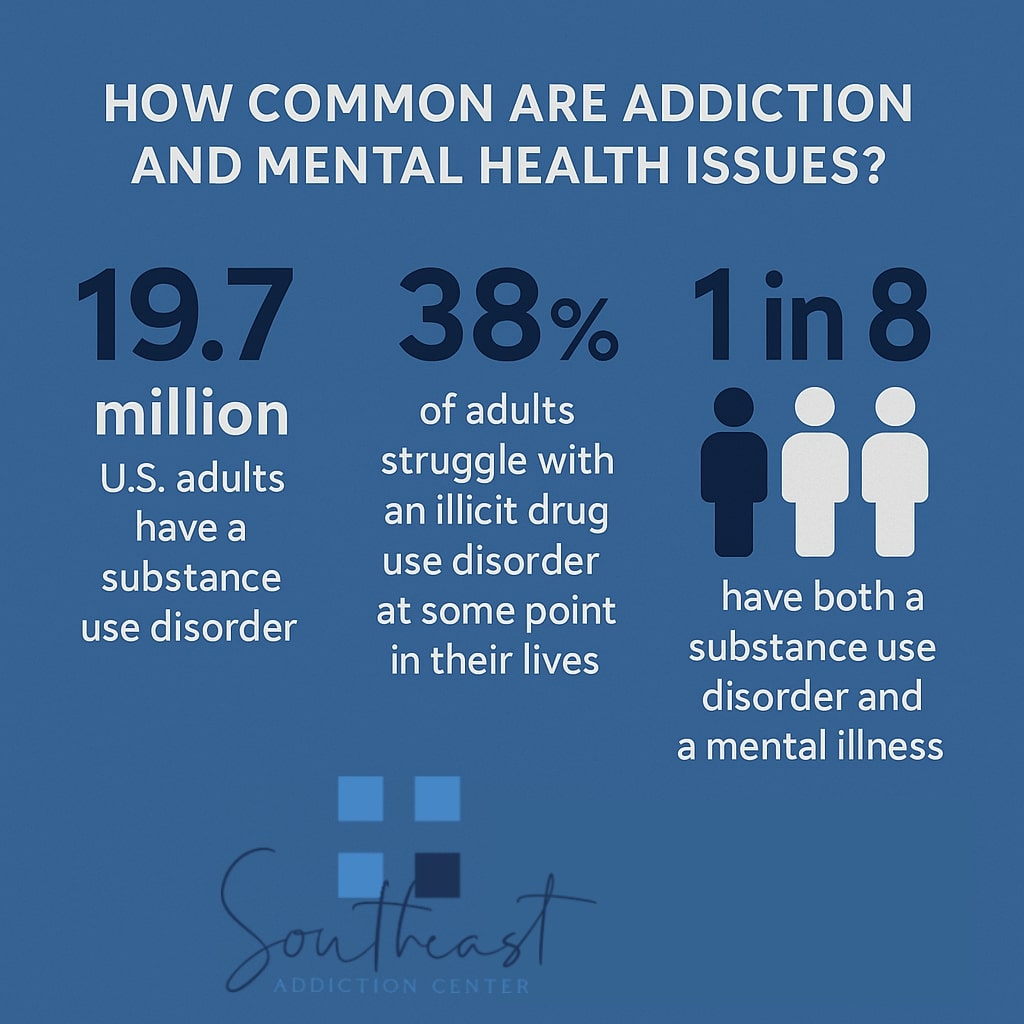Table of Contents
- Why the Holidays Are a Risky Time for Recovery Dropouts
- Stepping Away Doesn’t Cancel Your Progress
- You Don’t Have to Explain Everything to Come Back
- Warning Signs That It’s Time to Reconnect
- Rejoining Is Simpler Than You Think
- Still Using? You’re Still Welcome
- What to Say When You Reach Out
- FAQ: Returning to IOP at Southeast Addiction
- Your Next Step Doesn’t Have to Be Perfect—It Just Has to Be Real
You didn’t plan to stop going. Maybe you missed a group, then another. Maybe life got chaotic—family issues, work stress, cravings that crept up when no one was watching. Maybe you just felt too far gone, too embarrassed to come back.
If you’ve stepped away from your intensive outpatient program and now find yourself facing the holidays with anxiety, guilt, or relapse worries, take a breath: the door isn’t closed.
You’re still allowed in. You’re still welcome here.
Why the Holidays Are a Risky Time for Recovery Dropouts
Holiday commercials paint a picture of joy, connection, and comfort. But for many people in recovery, the reality is more complicated. This season can stir up grief, loneliness, shame, and family triggers that go all the way back to childhood.
When you’ve been away from treatment—especially mid-IOP—it’s easy to underestimate how destabilizing the holidays can be. You’re trying to act normal at gatherings, avoid drinking or using, and deal with relatives who may not understand what you’re going through. Even if you haven’t relapsed, your emotional defenses may be running thin.
Reaching back out now isn’t weakness. It’s protection.
Stepping Away Doesn’t Cancel Your Progress
We hear this fear a lot: “I was doing well, and then I ghosted. It’s like none of it counted.”
That’s not true. The work you did—the moments of honesty in group, the coping tools you started building, the hard days you made it through—all of it still matters. You didn’t undo it just because you stopped showing up for a while.
Recovery isn’t like a college course you fail if you miss too many classes. It’s a process. One with re-entries, pauses, and restarts.
You Don’t Have to Explain Everything to Come Back
Worried you’ll be asked why you left? That someone will make you justify your absence?
That’s not how we operate at Southeast Addiction.
We know that guilt and shame are already heavy when someone returns after dropping out. You don’t need to carry the weight of an explanation. You can come back quietly. You can call and just say, “I think I need to return.” That’s enough.
We’ll meet you with a calm plan and no judgment.
Warning Signs That It’s Time to Reconnect
You don’t have to be in full relapse to benefit from returning. Often, it’s the subtle signs that signal your footing is slipping:
You might be ready to come back if:
- You’ve started isolating again or avoiding check-ins
- Your sleep, appetite, or mood feels off
- You’re thinking, “Maybe I didn’t need treatment anyway”
- Cravings have crept back into your day-to-day
- You feel overwhelmed about facing the holidays sober
These aren’t failures. They’re signals. Signals that your IOP structure—the groups, the support, the accountability—might be worth returning to before things spiral.

Rejoining Is Simpler Than You Think
Many people imagine they’ll need to “start over” or repeat the whole program. That’s rarely true. Here’s what re-entry usually looks like at Southeast Addiction:
- You call or message us — Just let us know you’re thinking about coming back.
- We talk it through with you — One of our clinicians will help assess where you’re at emotionally and clinically.
- We tailor your return plan — You might restart where you left off, attend a few refresher groups, or step into a schedule that fits your current life.
- You begin again—with support — No lectures. Just a supportive, familiar space where you can pick up the thread.
Whether it’s been days, weeks, or longer, you can rejoin your intensive outpatient program in Peachtree Corners without shame or punishment.
Still Using? You’re Still Welcome
If you’ve relapsed since leaving IOP, we want to be clear: You’re not disqualified.
We know relapse happens. We don’t see it as failure—it’s a signal that more support is needed. Coming back after using can feel especially hard, but that’s when re-engaging is most powerful.
You don’t have to “clean up” before returning. In fact, coming back during a tough moment is one of the most courageous things you can do.
What to Say When You Reach Out
If the hardest part is picking up the phone, here are a few simple ways to start:
- “I used to be in your IOP, and I’m thinking about coming back.”
- “I don’t know where to start, but I need support.”
- “Is it okay to return after missing so much?”
The answer is yes. Yes, it’s okay. Yes, you’re still welcome. Yes, we’ll walk you through it—step by step.
FAQ: Returning to IOP at Southeast Addiction
What if I’ve relapsed? Can I still come back?
Yes. Relapse doesn’t disqualify you. In fact, it’s often a reason to reconnect. We’ll talk about where you’re at and what level of support fits best now.
Will I have to start the program over?
Not usually. Your return plan is personalized. You may pick up where you left off or shift your schedule based on current needs.
Do I need an assessment before I come back?
In most cases, yes—but it’s not a test. It’s a conversation to make sure we support you in the most effective way possible.
What if I feel ashamed or embarrassed?
That’s incredibly common—and it fades quickly once you’re back. Our team isn’t here to judge. We’re here to welcome you.
Is there a time limit on how long I can be gone?
Not really. The sooner you reach out, the easier it is to reintegrate, but we’ve had clients return after weeks or months away.
Your Next Step Doesn’t Have to Be Perfect—It Just Has to Be Real
Whether you left on purpose or quietly disappeared, your place isn’t gone. Southeast Addiction’s Intensive Outpatient Program in Peachtree Corners is still here for you. You don’t have to wait for the bottom to fall out or for the calendar to flip to January. You can make the call now—and walk back in without shame.
📞 Thinking about returning?
Call 888-981-8263 or visit Southeast Addiction’s IOP page to learn more about our Intensive Outpatient Program services in Peachtree Corners, GA. We’ll help you come back on your terms—with care, not judgment.









